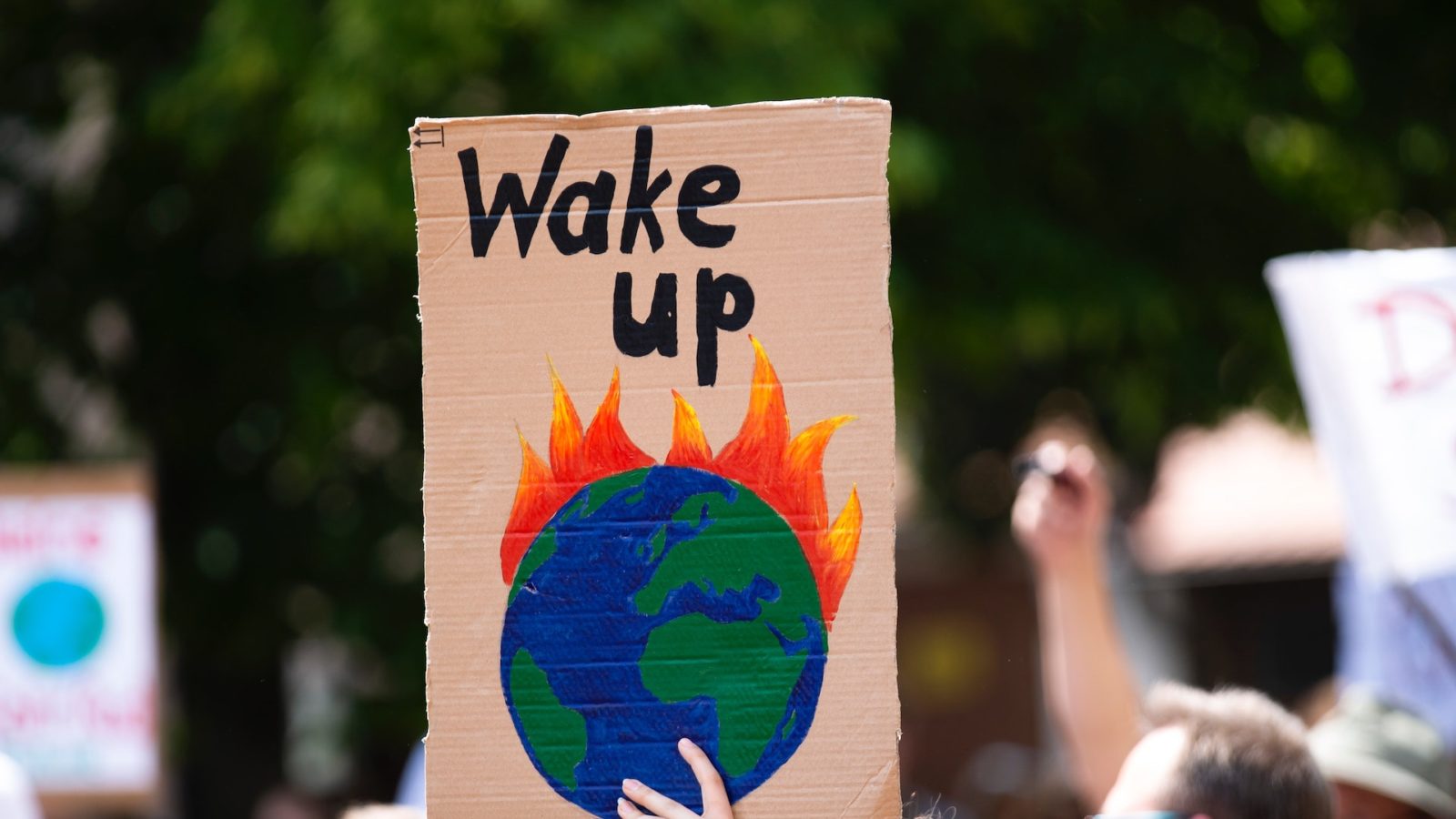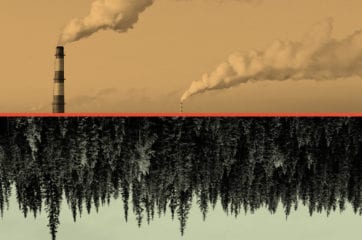This year has been nothing but turbulent, in every sense of the word. We started 2020 with the onset of a global pandemic — accompanied by an economic downturn, soaring unemployment rates, and an enormity of death — followed by unprecedented wildfires in numerous states, a remarkably active hurricane season, and are now coming off the heels of one of the most important elections of our lifetime.
The crises that we have collectively endured during these past ten months have exacerbated existing inequalities, produced new ones, and started what some are calling the initial waves of climate displacement in America. The impacts of extreme weather that we’re seeing today have been increasingly linked to a warming climate, and they’re only predicted to get worse. As the leader of the country with the second highest carbon footprint, President-elect Joe Biden will not only dictate climate action on a national scale, but on a global scale as well.
This presidential election was a historic one: Biden received the most votes ever cast for any candidate, and Harris will be the first woman, first Black American, and first South Asian-American to hold the vice presidency. This election was also the first of what activists are calling a “climate election.” The future livability of our planet and the systems of civilization were quite literally on the ballot this year. And yet, the Biden-Harris ticket only won by slim margins, so is there something about the way we talk about climate threats and stakes that we are still not getting quite right?
Debates dropped the (climate) ball
Let’s go back a few weeks to the presidential debates, where the issue of climate was more or less solidified as one of the top issues for voters. For the first time in 12 years, we heard a debate moderator ask U.S. presidential candidates a question relating to the climate crisis. We also saw a question around climate change come up in the vice presidential debates, and then again in the final debate between Trump and Biden.
Advocates and environmentalists were encouraged that the climate crisis was, at the very least, getting prominently mentioned on the platforms intended to showcase each candidate’s plans to voters. Even though the issue of climate change was broached in each of the three debates, however, both the questions and responses were indicative of the long ways to go in improving the ways and language with which we talk about climate. Many of us found ourselves shouting at our televisions, much like the candidates shouted over one another during the debate, at just how behind messaging on climate still seems to be.
The moderator of the first debate, Fox News anchor Chris Wallace, posed the question, “What do you believe about the science of climate change and what will you do in the next four years to confront it?” A similar question was posed to Vice Presidential candidates as well, asking “Do you believe, as the scientific community has concluded, that man-made climate change has made wildfires bigger, hotter and more deadly?”
The scientific consensus around climate change holds strong and we’re already seeing the impacts materializing, so why are we still asking if people believe in climate change? Why are we asking the future leaders of our nation if they believe what science is telling us is happening? Although these are “debates,” the wide agreement among scientists from numerous disciplines that climate change is happening, isn’t something to be argued.
The framing of these questions fosters an air of climate skepticism and it creates a space, on a national platform no less, for candidates to cast doubt on climate science. It also allows candidates to maneuver around the question as opposed to providing a forthright answer, which was demonstrated from both presidential and vice presidential candidates.
The questions posed to candidates not only positions climate science as something to be contested, but it also fuels climate denial and the rhetoric that science is uncertain about the ability for greenhouse gases to negatively influence the climate.
A recent episode of our Cooler Earth podcast touched on this issue with renaissance scholar and climate activist Dr. Genevieve Guenther. She points out that one of the biggest mistakes we make in talking about climate is this framing of climate change as a belief. Guenther states: “To use the verb ‘believe’ is to implicitly represent climate change as a fiction or a theological tenant […] This locution actually seeds ground to the climate deniers, who say that climate change is fictional, who call themselves skeptics. It’s perfectly legitimate to be skeptical of belief, it’s not legitimate to be skeptical of an established truth.”
The fallacy of the cost fixation
In the first presidential debate, Wallace’s question on whether candidates believe in the science around climate change eventually spiraled into a conversation about Biden’s climate plan. In the third debate, questions about climate change aimed to focus on the candidates’ specific plan to address the issue. These discussions largely ignored whether candidates actually support scientific facts and instead fixated on an aspect of climate action that has long been a barrier to its implementation: cost.
Wallace touched on Biden’s $2 trillion green jobs and clean energy plan, which includes elements of Rep. Alexandria Ocasio-Cortez and Sen. Ed Markey’s Green New Deal (GND) — a plan that has been polarizing within political discourse since its release — but doesn’t outright support the initiative. Biden’s plan would accelerate the transition to clean energy, invest in energy efficiency for buildings, as well as focus on modernizing our infrastructure while keeping environmental justice at the forefront. President Trump’s plan has already been exemplified in his rollbacks of nearly 100 policies and regulations that play a crucial role in safeguarding our climate, environment, and communities on the frontlines. He also has justified new oil and gas development and exploration by undervaluing the social cost of carbon, and has heavily supported planting a trillion trees — which has been shown to be a potentially problematic climate solution — as we just wait for the climate to “get cooler.”
In both presidential debates, and in discussions around climate more broadly, conversations around action consistently bring up the cost of implementing initiatives such as those outlined in the Biden plan and the Green New Deal, but they also consistently failed to address the cost of inaction. Arguments against a $2 trillion plan run rampant, but the mounting costs of wildfires, hurricanes, heat waves, droughts, floods, most of which are fueled and influenced by anthropogenic climate change, rarely receive any attention at all. Not to mention the lack of media coverage that actually makes the connections between extreme weather events and the climate crisis.
Analysis from Emily Atkin, author of a newsletter HEATED, looked at 30 different articles published about the climate segment of the second debate, and found that only five spoke about the cost of inaction. The other 25 segments focused on the economic ramifications of climate policy, and completely ignored the fact that we’re already accruing the costs of letting our climate breakdown continue unchecked.
Don’t be fooled, we’re already paying for climate change. And these costs aren’t limited to material or monetary losses either, it includes losses in cultural, social, and aesthetic values too. Taxpayers and governments are already footing the bill for climate impacts, so why is there such apprehension to foot the bill for action? Framing the mere existence of climate change as a “belief” or something to be debated surely doesn’t help. In fact, that can actually serve as a good launching point for how we can improve how we talk about this issue.
In 2020 alone, we’ve seen 16 weather events that were each driven or fueled by climate change. Each of these events is estimated to cost over a billion dollars, and that’s only for a single calendar year. Projections for future impacts of a warming climate stretch the estimates of economic losses into the $10 to $50 trillion range, which means that we can mitigate this crisis for a fraction of the cost it’s eventually going to cost us in the long-run. Previous modeling for climate change hasn’t fully accounted for “unpredictable fluctuations in global temperatures observed year after year,” according to the authors of a new study. The same study also outlines how even slight variations in global temperatures result in trillions of dollars worth of damage, reinforcing the urgent need to limit warming as much as possible to avoid irreversible damage.
New administration, new opportunity
The historic beginning of a Biden-Harris administration sets the stage for many things, one of them being the rectification of federal inaction on climate change. This ticket won on the basis that the climate crisis would be among their top priorities in the White House, and now they need to deliver that truth to the American people.
Moderate Democrats recently criticized their more progressive colleagues by claiming that their ideals cost the party seats this cycle, yet analysis shows that races built on support for policies like the Green New Deal were winners in comparison to moderate counterparts. It seems progressive climate policies are slowly permeating the political sphere, and winning elections in the process. If we’re to maintain the momentum for climate action, we must continue to sharpen our communication and messaging. We need to learn from the patterns playing out in front of us, and we cannot continue to ignore the cost of inaction — the stakes are just too high. Yes, combating the climate crisis is going to incur costs, but we’re already paying for it. In this current moment, we need to be thinking about how this new administration can make COVID-19 recovery funds work in tandem with climate and environmental goals, how it can accelerate clean energy, and how it can stimulate an economy that isn’t an extractive one.
As Mary Annaïse Heglar writes, “Myopia is canceled. It is a luxury, and illusion, we can no longer afford.” Americans have thrown their weight behind Joe Biden, and now he needs to do the same for the American people when it comes to addressing the existential, intersectional, and very immediate threat of climate change.









